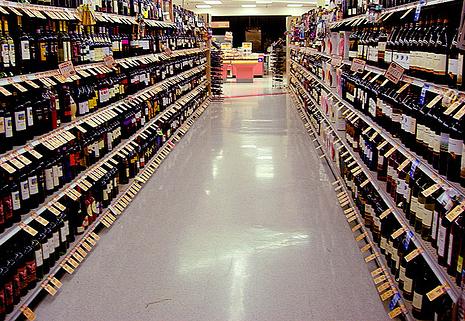Link between alcohol and suicide should be addressed

The link between alcohol and suicide is unequivocal and needs to be addressed, writes Bev Cotton.
As Taoiseach Bertie Ahern infamously said at a 2007 trade union conference in Donegal: "Sitting on the sideline or the fence, cribbing and moaning is a lost opportunity. In fact I don't know how people who engage in that don't commit suicide." As the Independent on Sunday reported at the time: “The sense of shock caused by his televised words to anti-suicide campaigners was heightened by the fact that some delegates greeted them with laughter.”
The truth is that suicide is an increasing challenge in Ireland; one which politicians have yet to rise to. The official statistics show that there were 527 suicides in the Republic in 2009, a 24% increase year on year. But another 200 deaths that year were of an undetermined nature. It is believed that the true suicide figure for 2009 was actually between 600 and 700; of those 80% were men.
Suicide, like alcoholism, is known to increase at times of unemployment and even anticipation of unemployment. A letter by specialists in public health, led by David Stuckler of the University of Cambridge, published in the Lancet this July, notes a recorded annual increase in suicides in Ireland of 13% and comments that this is “consistent with historical studies that show immediate rises in suicides associated with 'early indicators' of crisis, such as turmoil in the banking sector, which precipitates later unemployment.” The data are still preliminary, which is a reminder, as Stuckler says, “of the contrast between the substantial efforts expended by governments to collect up-to-the-minute financial data while health data lag by several years.”
Brendan Walsh wrote in May in his major report on unemployment and suicide in Ireland (see below) that “there is some evidence that the suicide rate is being increasingly under‐reported in recent years.” Figures published by the Central Statistics Office this June, for example, record that “386 men and 100 women took their own lives in 2010”, which the Irish Times reported under the headline "Drop in number of suicides to 8% welcomed by research group". But after emphasising these figures the same article acknowledges later on that “researchers believe actual suicide rates are typically higher than official statistics as some people who take their own lives are classified as ‘deaths linked to undetermined intent’ in official statistics.”
No doubt with similar thoughts in mind, The National Suicide Research Foundation welcomes this apparent “levelling off” in the number of deaths but cautions that “the statistics were still provisional and could change.”
David Stuckler’s Lancet article compares suicide statistics across ten European states since the recession kicked in. Put neatly by RTÉ: “Suicides rates rose sharply in Europe between 2007 and 2009 as the financial crisis drove unemployment up, with Greece and Ireland worst affected.” In 2008, according to the research, suicides among people aged younger than 65 in the other eight European states studied rose by 7% over 2007, but “two of the worst hit economies” Ireland and Greece saw a rise of 13% and 17% respectively.
Suicide and alcohol
The link between alcohol and suicide is unequivocal. We already know from one Irish study of people who died as a result of suicide that more than half had alcohol in their blood, and in 2007 alcohol was a factor in 41% of all cases of deliberate self-harm. A report into suicide and mental illness in Northern Ireland by Professor Louis Appleby published in June of this year found that "Of all the patients who died by suicide, 60% were thought to be misusing alcohol by their doctors. About half of these were alcohol dependent." Dr Uzma Huda, Vice Chair of the Royal College of Psychiatrists in Northern Ireland, calling for a minimum pricing for alcohol, said: "We can no longer afford to ignore the growing trend linking alcohol and suicide, particularly in young people." For a full report see the Gargle Nation article here.
The influence of alcohol and unemployment on suicide
The link between suicide and alcohol is also explored in a study published in May by Professor Brendan Walsh of University College Dublin. Predicting that 2011 will be the worst year for suicides yet, Professor Walsh studied the relationship between unemployment and alcohol in Ireland and found that “Alcohol consumption is a significant influence on the male suicide rate up to age 64.” Professor Walsh's findings suggest that higher alcohol consumption played a major role in the increase in suicide mortality among young Irish males between the late 1960s and the end of the century. He concludes: “The recent rise in the suicide rate may be attributed to the sharp increase in unemployment, especially among males.” His recommendations are clear:
"Increased taxation of alcoholic beverages is generally regarded as the most effective of the available policies to discourage heavy drinking…The close association between the level of alcohol consumption and the suicide rates among young males suggest that a reduction in consumption due to heavier taxation of alcoholic beverages would lead to some reduction in the incidence of suicide. [The] relatively lenient tax treatment of alcoholic beverages over the last decade does not reflect the widely‐expressed concern about the high suicide rate among young people."
For information and contacts, and more on suicide and alcohol see the Gargle Nation suicide page. To read how NI Health Minister Edwin Poots has avoided mentioning alcohol after welcoming a report linking alcohol and suicide, see here.
Image top: AllisonKo.
